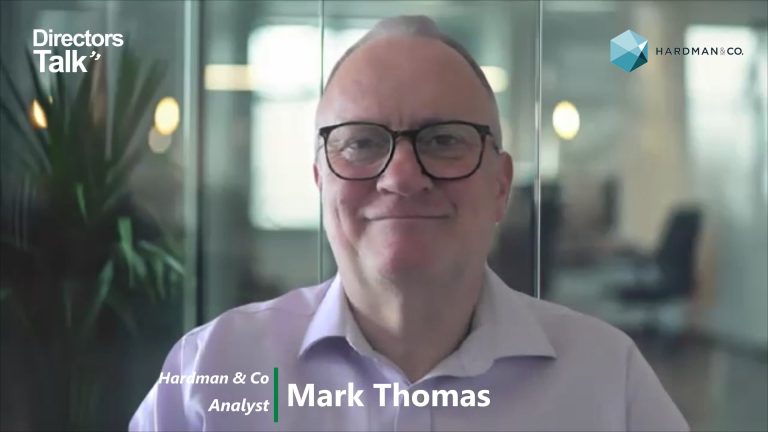1pm plc (LON:OPM) is the topic of conversation when Hardman and Co’s Research Analyst Mark Thomas caught up with DirectorsTalk for an exclusive interview.
Q1: You called your piece on 1pm plc “Give credit where it is due”, can you explain why that is?
A1: 1pm is a lender to small and medium-sized businesses and, as with any other lender, credit is really really important.
Now, what we’ve got from the company is some new disclosure on the accounting rules IRFS9 and what that shows is it’s been very conservative in the way it adopted its historic approach to provisioning. So, we’ve had some new news on that.
What we’ve also done used that disclosure to scenario-test in different economic conditions and we’ve concluded from that scenario testing that even in a hard recession, impact on earnings is actually very modest. So, disclosure that shows a very conservative approach to provisioning and scenario testing that shows downside that’s surprisingly modest, we just felt the company should be given credit for both of those.
Q2: You just mentioned Mark about IFRS9 accounting, can you explain why it’s important?
A2: The accounting authorities regularly review accounting policies and one of their latest proposals which is called IFRS9 is especially important on accounting for bad debts. On the old basis, what you did is take a provision when there were signs the loan had gone bad and you assessed the loss then at that stage. With the new policy, what you do is you take a provision when you make the loan, even if it’s perfectly good, and you provide for the amount that you expect to lose over the course of time.
It’s a very different approach and the new policy recognises both losses but also recoveries earlier and recognising losses earlier can be especially painful for a growing book. The approach also introduces a range of scenarios from the best case to a worst case and that gives investors the opportunity to do some sensitivity testing.
Q3: So, the accounting has changed so what is the impact on 1pm?
A3: Well, as a growing business you’d expect IFRS9 to be painful for them, you take provisions when you take the loan, so growing businesses have more provisions up front, but the impact was just 0.25% so a quarter of a percent of net assets. Now, that’s much less than most of the peers that have reported so there’s a specialist low-risk lender called Orchard Finance at 1.5%, there’s a peer to peer lender P2P Global at 2.5%, Morses Club and Non-Standard Finance between 5-6%, 13% at Amigo and 34% at Provident Financial.
So, it’s a very very low number for them and the reason that it’s so low is because 1pm under the old rules hadn’t recognised its likely recoveries. With a very good, an outstanding record of getting money back on bad loans, OPM gets a much bigger benefit from recoveries than the peers and with the new accounting policy, it actually gets to recognise those recoveries earlier, it had also been conservative in building general provisions.
So, what the message is, the key thing ultimately, is that they were very conservative, and the culture is very conservative.
Q4: So, what business message do you take from that work?
A4: We did some work around the disclosure, on the potential losses, and this is the second aspect of the business covering a range of economics scenarios. What we did is model income, costs and impairments to see what the earnings would be in a soft landing and a hard landing and also saying if current very good conditions continued.
We then compared the effect on the 2019 earnings against the 2017 actual results and in the optimistic scenario, where it continues the current very low level of impairments, we see 2019 earnings 38% higher than 2017. Our base case, which is our current forecast, the earnings grow 28%. If you look at the worst-case scenario, within the IFRS9 disclosure, EPS is just 1% lower in 2019 than 2017. If you then take a scenario which is 1.5 times the worse-case, so impairments at 4.3 times the current level, we would forecast that earnings would fall just 19%.
The key messages from that is 1) the balance probabilities that 1pm will deliver good, potentially very good earnings growth and 2) the risk on the downside, even in a hard recession, appears highly manageable.









































